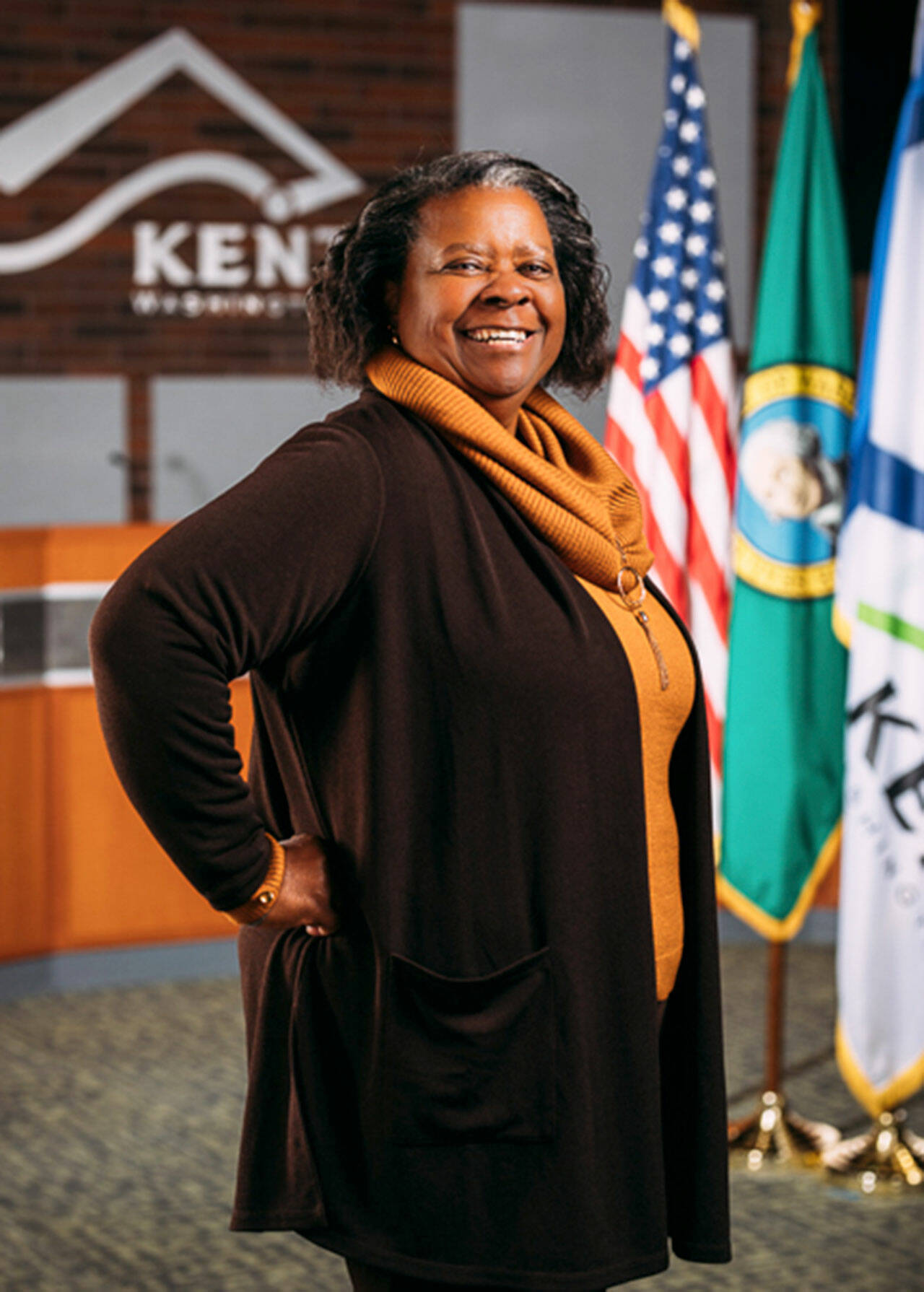Kent City Councilmember Brenda Fincher joined two state legislators and others at the Seattle Aquarium to help launch a new bill to eliminate unnecessary packaging and improve recycling.
Sen. Christine Rolfes, D-Bainbridge Island, and Rep. Liz Berry, D-Seattle, will introduce a bill during the 2023 legislative session, which starts Jan. 9, to increase Washington recycling rates and incentivize companies to reduce packaging and switch remaining packaging to reusable, compostable, or recyclable alternatives.
“For too long, companies have put the responsibility of recycling and disposing of paper, plastic, and other packaging on the shoulders of individuals and local communities,” said Fincher, part of the Jan. 4 launch event. “The WRAP Act will help expand and improve recycling services for Washingtonians by ensuring that companies work with communities for cleaner, greener Washington.”
Each year, roughly 400 million tons of plastic waste is produced worldwide. Nearly half of all plastic produced is designed to be used just once and then thrown away. Washingtonians experience this problem first-hand with all of the single use packaging filling landfills, littering neighborhoods, shorelines, and parks, and harming wildlife, according to an Environment Washington news release.
“Washington has taken some great steps to reduce waste and improve recycling, but there is more work to be done,” Berry said. “The WRAP Act is a comprehensive plan that will help limit the amount of recyclable materials going to landfills and expand recycling services to more households. I am particularly excited about creating a beverage deposit system to greatly increase our ability to reach recycling, reuse and refill targets. I am proud to be the House champion for this truly landmark legislation for our state.”
The WRAP Act would use two complementary mechanisms to improve recycling and reduce waste, according to the Environment Washington news release:
• Establish a producer responsibility system, requiring the companies that actually make packaging decisions to be financially responsible for the end-of-life management of these materials, rather than those costs falling on Washington residents. This model has proven successful around the world, and similar programs have recently been established by state legislatures in California, Oregon, Colorado and Maine.
• Create a bottle deposit program, which has been shown to generate very high recycling rates for beverage containers.
The WRAP Act will also require a standardized list of what is recyclable in curbside bins statewide, eliminating a confusing web of municipalities accepting different materials.
In 2018, Fincher participated in another launch event at Seattle Aquarium for a state bill to ban plastic bags at grocery stores and retail outlets. The Legislature approved a single-use plastic bag ban in 2020 and carry-out plastic bags were prohibited starting in 2021.
Talk to us
Please share your story tips by emailing editor@kentreporter.com.
To share your opinion for publication, submit a letter through our website https://www.kentreporter.com/submit-letter/. Include your name, address and daytime phone number. (We’ll only publish your name and hometown.) Please keep letters to 300 words or less.

